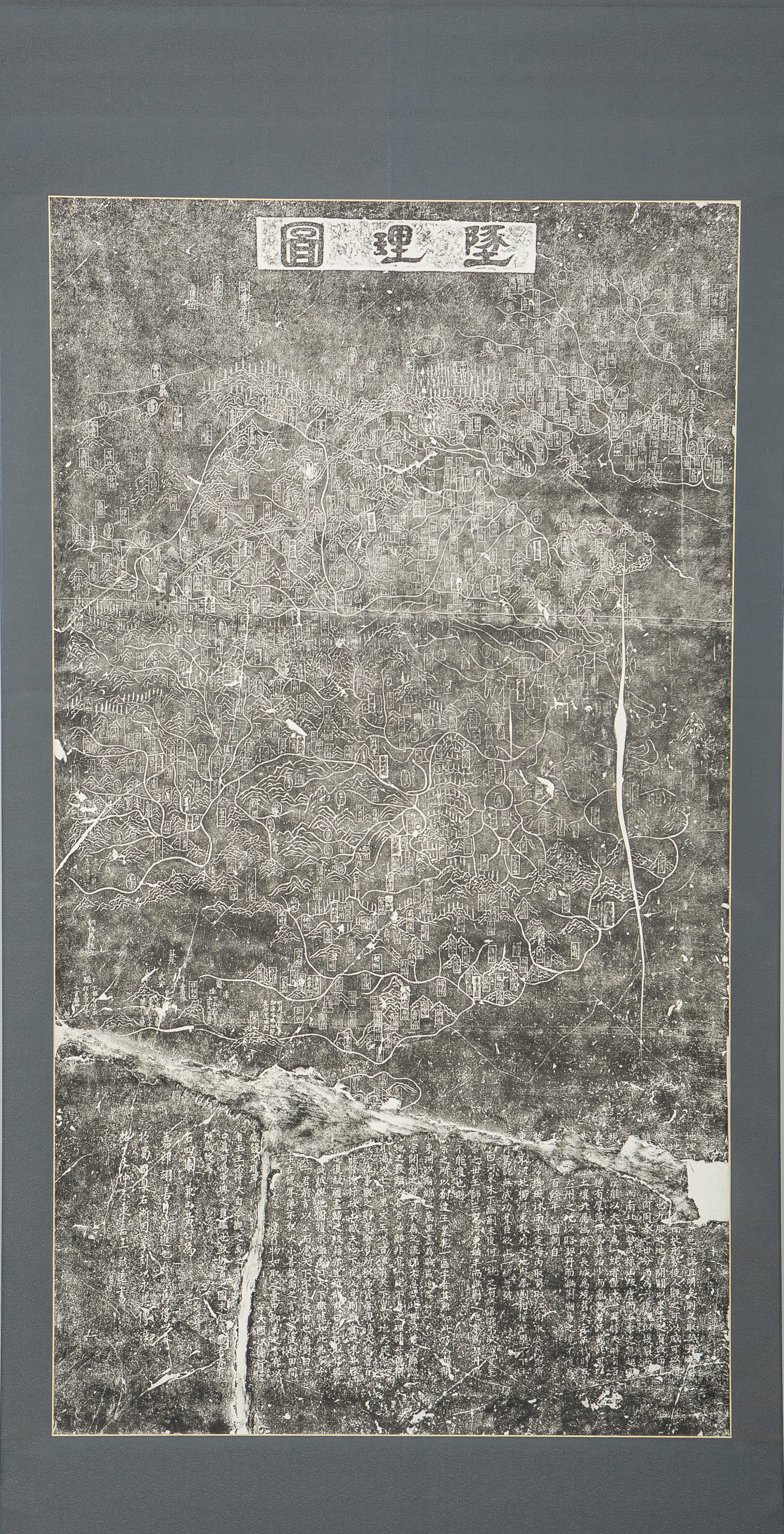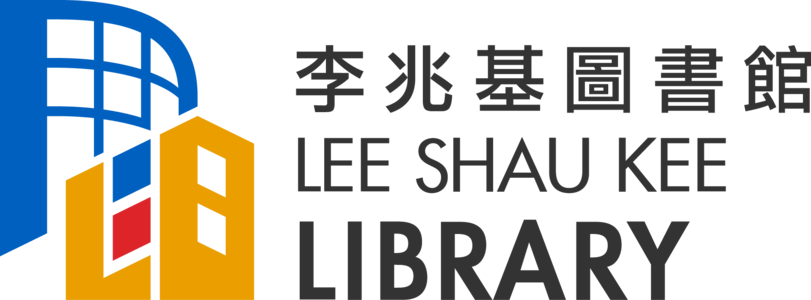地理圖 Dili Tu

| 地理圖口口口口口郡邑亦詳且明矣 | In this map [we represented the territory of the Song state]. The prefectures and cities have also been shown in details and with clarity. |
| 則又取契丹女貞之地 口口口口口 | Furthermore we have taken the lands of the Khitan (Liao) and Nuzhen (Jin) [and represented them accurately]. |
| 南北形勢使人觀之可以感可以憤然亦口口口口口也 | This situation of the South and the North will move to anger those who observe it [because of the loss of the Northern territories] and yet […]. |
| 九服之地自開闢以來, 未之有改而距離口口口口不同 | The territory of the nine domains has not changed since the beginning but its coalescing and diverging has been […] not the same. |
| 周秦之世分而為六 | Under the Zhou and Qin it was divided into six parts [the kingdoms of Wei, Han, Zhao, Chu, Yan, Qi]. |
| 漢魏以後裂而為三口口口江而南北之勢成 | After the Han and the Wei it fragmented into three […] and the contrast between the South and the North was established. |
| 祿山叛唐而五季之亂起 | Then [An] Lushan rose in revolt against the Tang and the troubles of the Five Dynasty started. |
| 回視三代兩漢, 能以天下為一統者僅十一耳 | If one looks back at the Three dynasties and the two Han dynasties, only one out of ten times the empire could be unified. |
| 將天時有否泰口口君德有厚薄歟 | Because the times assigned by Heaven are sometimes bad, sometimes good […] and [ruler’s] virtue is sometimes strong, sometimes weak. |
| 奚其治少而亂多若此哉. 此可以感口口 | And yet why is it like this, that order is rare and chaos prevalent? This can […] |
| 土壤北屬幽燕以長城為境舊矣 | Since antiquity the territory in the North belongs the district of You Yan and its limit is the Great Wall. |
| 至五代時石口口口口六州之地以賂契丹 | But during the Five Dynasties Shi [Jingtang 石敬瑭 ruler of the Later Jin 後晉] took six districts and gave them to the Khitan. |
| 而幽薊朔易之境不復為吾口口口口百餘年口 | And the districts of You, Ji, Shuo and Yi ceased to be [part of the empire] for more than a hundred year. |
| 國朝自口藝 (祖) 皇帝, 櫛風沐雨平定海內 | Our dynasty starts with Emperor Yi Zu, who combed by wind and rain [relentlessly on the move] conquered the territory within the sea. |
| 取蜀取江南取吳越取廣東 | He got Shu and the Jiangnan, he got Wu, Yue and Guangdong. |
| 又取河北獨河東數府之地與幽薊相接堅壁不下 | He also got Hebei, but many districts of Hedong [Shanxi] did not submit to him, as they are connected to You and Ji like solid ramparts. |
| 王師再駕訖無成功, 群臣欲上一統尊號 | The Emperor made a new expedition and it still ended without success, so when his subjects wanted to hail him with the title of Supreme Unifier. |
| 藝祖曰河東未下幽薊未復, 何一統之有? | Yizu said: “Hedong has not submitted and You and Ji have not yet been regained, how could there be a real unification? |
| 終謙遜不敢當也 | So in the end he modestly refused not daring to accept the title. |
| 蓋至[太]宗之世王師三駕 | Then under Taizong there were three more expeditions. |
| 河東始平而幽薊之地卒為契丹所(有) 不能復也 | The Hedong was initially all pacified but in the end You and Ji remained and the Khitan and could not be recovered. |
| 則(祖) 宗之所以創造王業混一區宇者其難如此 | These then were the difficulties of Taizong in establishing the Royal enterprise and in unifying all his territories. |
| 乃今 (自) 關以東河以南, 綿亙萬里盡為賊區 | And now all that is east of the passes and south of the Yellow River, for an unbroken stretch of ten thousand miles is all barbarians territory. |
| 追思祖宗創開之勞可不為之流涕太息哉. 此可以憤也 | If one remembers Taizong’s toil in setting up the empire one cannot but shed tears and sigh deeply for it. This is worth deep anger. |
| 雖然(天) 地之數, 離必合,合必離, 非有一定不易之理. 顧君德何 (如) 耳. | Nevertheless, it is the norm ruling heaven and earth that brings to unity what is separate, and separates what is united; there is no principle which is fixed and immutable. One should take into account most of all the virtue of the ruler. |
| 湯以七十裡, 文王以百里, 有天下. 豈以地大民眾之 口哉 | Tang, who only had seventy li of land, and Wen who only had one hundred, obtained all under Heaven. How could it be about relying on a large territory and a large population? |
| 以往事觀之則吾今日所以為資者視湯文何啻百[倍]. | If one looks at the present situation with reference to the events of the past, aren’t our present resources hundreds of times larger than Tang’s and Wei’s? |
| 口能修德行政, 上感天心下悅人意 | If we can practice our virtue and enact a good government, moving the mind of Heaven above and the intents of people below. |
| 則機會之來併吞口口, 追復故疆盡歸之版籍亦豈難哉 | Then when the opportunity will come it won’t be difficult to annex all the territories, regain the old borders and bring all of it under our administration. |
| 故曰亦可以 (作) 興(也) | Therefore I say that there can be a resurgence. |
| 漢光武披輿地圖指示鄧禹曰 | Once Emperor Guangwu unfolded a map and showed it to Deng Yu saying: |
| 天下郡縣如此其多, 今口口 其一 | The prefectures and districts in the empire are so many, now [we only got] one of them, |
| 君前言以公而慮天下不足定何也 | Yet you once told me that if I wanted to conquer All under Heaven it would just happen, how? |
| 禹對曰古 (之興) 王在德厚薄不在大小 | Yu replied: “the ones who in antiquity became emperors, it was because of the extent of their virtue, not of their resources. |
| 善哉禹之言也 | Excellent, these words of Yu! |
| 光武起田間口口口 (盡) 平郡寇克服舊物如取之囊中 | Guangwu rose from among the fields [=out of the center of power], and yet to pacify the prefectures and conquer and regain his old inheritance, was easy like taking an object out of a purse. |
| 抑禹之言有以感發之耶 | It was clearly Yu’s words that moved him and set him on course. |
| 孟子曰以力口口口有大國 | Mengzi said: “By means of force [one can] obtain a big country. |
| 以德行仁者王. 王不待大. | By means of virtue to enact humane actions, one gets to be a ruler. To be a ruler one doesn’t need to have great resources. |
| 自今觀之禹之言口口口口口口口真可為中興之龜鑑也 | If one applies these considerations to the present situation […], Yu’s words can really serve as an omen and a guide for resurgence. |
| 故併書之圖末, 庶幾觀者亦有所感發焉 | That’s why I have written this at the bottom of the map, so that perhaps those looking at it will be moved and set on the right course. |
| 右四圖兼山黃公為嘉邸翊善日所進也 | The four maps above have been presented by Huang of Jianshan when he was tutor to prince Jia [who became Emperor Ningzong 寧宗 in 1194]. |
| 致遠舊得以本于蜀司臬 | I, [Wang] Zhiyuan, found them in a Law Office in Sichuan. |
| 右浙因摹刻以永其傳 | I got them copied and carved in Western Zhejiang, to ensure their permanent transmission. |
| 淳祐丁末仲冬東嘉王致遠書 | Written by Wang Zhiyuan from Dongjia in the second Winter Month of the dingwei year of the Chunyou era [1247]. |
last modified 26 April 2021

